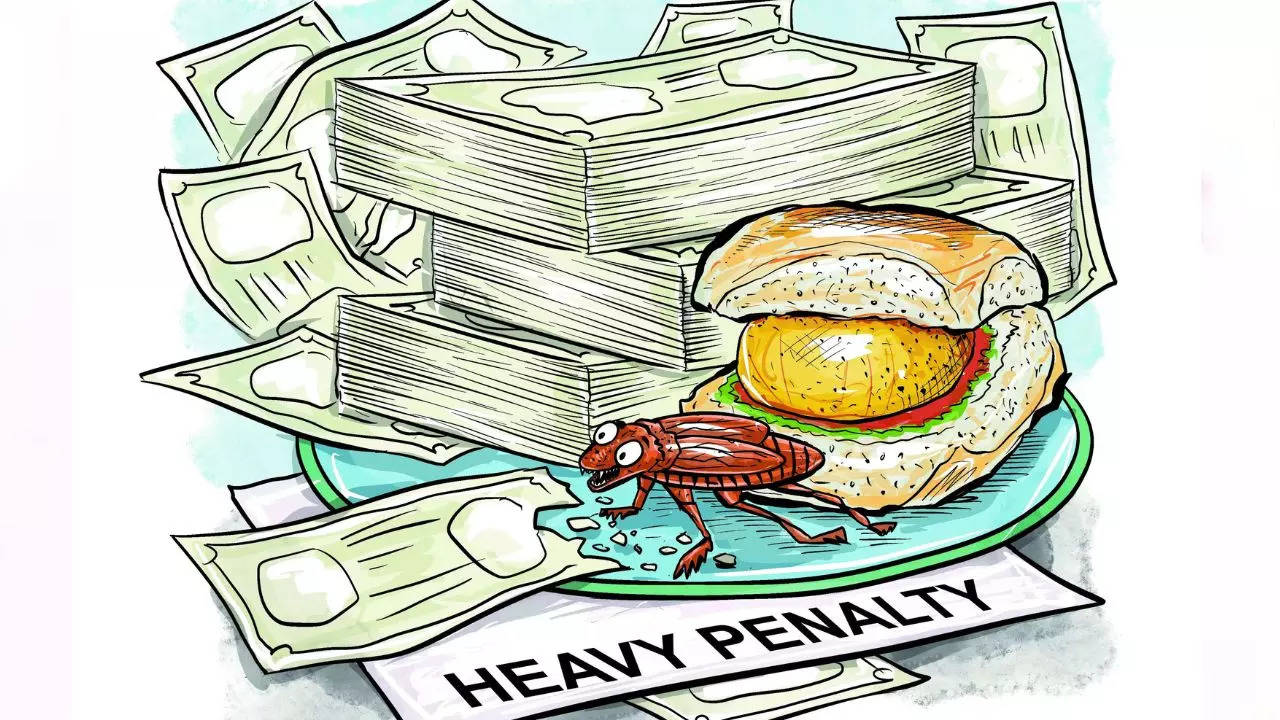Ahmedabad: The dining scene in Ahmedabad is facing a creepy-crawly crisis. With an increasing number of people complaining about being served insect-infested meals, the Ahmedabad Municipal Corporation ( AMC ) is responding by amending the GPMC Act to introduce stringent bylaws designed to whip the city's food establishments into shape. From humble street carts to ritzy five-star hotels, all are in the AMC's crosshairs.
In fact, the swankier the restaurant, the steeper the penalty. High-end establishments could now be slapped with fines ranging from Rs 10,000 to a jaw-dropping Rs 50 lakh if they fail to meet cleanliness standards, top sources aware of the draft bylaws being finalized said. The message is clear: no matter how posh the setting, hygiene is non-negotiable.

"All food-serving and producing units in Ahmedabad will be categorized into four groups: A, B, C and D. Units with the highest prices and largest customer bases will be in category A, while categories B, C, and D will follow in descending order, with street vendors and carts in category D. Each category will face different fines for up to 30 specific violations," said an AMC official.
If a restaurant commits multiple violations, it will incur separate penalties for each infraction, resulting in a cumulative increase in the total fine amount. "The highest fines will be reserved for Category A, which includes luxury hotels, upscale restaurants and large cloud kitchens. These categories are determined by factors such as customer numbers, food prices, services provided and staff details," revealed the official.
Fines will be imposed for infractions including lack of a licence, unsanitary conditions, poor personal hygiene, use of expired items, presence of insects, failure to conduct pest control, serving inedible food, using prohibited items, selling substandard food, improper labelling and more. The penalties will vary based on the category. The official said, "Heavy penalties will be imposed on five-star hotels and expensive restaurants where customers pay a premium.
Repeat offenders will face even steeper fines. Street vendors will also be fined, but their penalties will be much lower than those of luxury establishments. However, multiple offences can result in fines up to Rs 50,000.
We aim to enforce food safety standards across all units, with stricter actions for high-end venues serving inedible food." Currently, the AMC health department's power is limited under the Food Safety and Standards Act 2006. So, if the civic body receives a complaint, it can only seal the units and collect administrative charges.
But there is no uniformity in the penalty and administrative charge to be levied leading to arbitrary fines and charges, sometimes attracting corruption charges. "The proposed amendment to the Gujarat Provincial Municipal Corporations (GPMC) Act will bolster the authority of health department officials, ensuring more regular inspections and compliance." Recent data underscores the urgency of these measures.
Over 25 complaints about insects in food have been lodged in the past seven months alone. Shockingly, fewer than 10% of Ahmedabad's 4,524 licenced hotels and restaurants regularly present pest control certificates despite mandatory annual requirements. According to the provisions of Schedule 4 of the Food Safety and Standards Act 2006, it is mandatory for all food units, including restaurants and hotels, to conduct pest control annually and submit pest control certificates, but this is not being followed.
.



















